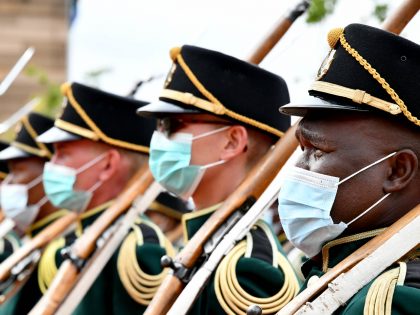
Dreams of highfalutin philosophies
If an author writes with empathy, precision and authenticity about experiences foreign to their own, they're a good writer and not a cultural appropriator.

If an author writes with empathy, precision and authenticity about experiences foreign to their own, they're a good writer and not a cultural appropriator.

Mabel Cetu is considered South Africa's first Black woman photojournalist and documented the everyday lives of Black communities in the 1950s.

South Africans agree that redistribution and economic security are urgent. But will they arrive via a deepening of democracy and public accountability, or a return to authoritarianism?

On the South African Department of Tourism's pending sponsorship deal with Premier League football club, Tottenham Hotspur.

Fear of the future, longing for the past: the new story in South African politics.

Documenting an urban housing crisis and how tens of thousands of informal workers and unemployed people struggle to reshape Johannesburg.

Amilcar Cabral’s influence stretched far beyond the Portuguese colonies, profoundly influencing the political struggle in South Africa, past and present.

A bleak new television drama, ‘Donkerbos,’ explores secrets in small town South Africa, but fails to offer alternatives to the tropes of good vs evil.

Khoisan Consciousness is sweeping across South Africa. Exploring multiple perspectives is vital to make sense of it.

The future of Stellenbosch University does not depend on whether white people there can transcend individual stereotypes and prejudice. It depends on whether they can articulate anti-racism as a genuine political position.

The video playlist from our one-day symposium marking the 10th anniversary of the Marikana massacre—funded by Rosa Luxemburg Stiftung—is now on YouTube.

Author RW Johnson's latest aberration is a mix of fiction and lazy research that misrepresents anti-apartheid struggle leaders.

What happens when companies start to sell the idea of a frictionless consumption that helps people at the same time?

The campaign to separate South Africa's Western Cape from the rest of the country is not only a symptom of white privilege, but also of the myth that the province is better run.

Queer Indians are largely invisible in South Africa's LGBT discourse. But representation is not enough, we need political transformation and multi-racial class solidarity.

To rebuild, the South African left must realize that there are no shortcuts to power.

New Zulu king Misuzulu's strategy for ensuring the relevance of his monarchy copies from the Windsors in Britain: use the media.

Surveys on race by South Africa’s Institute of Race Relations (IRR) are deeply flawed and cynically used. Its influence on mainstream politics is significant and dangerous.

The crime drama 'Reyka' looks at violence in the troubled South African province.

The spread of Garveyism from the US to Africa was as much about political liberation as it was religious salvation.